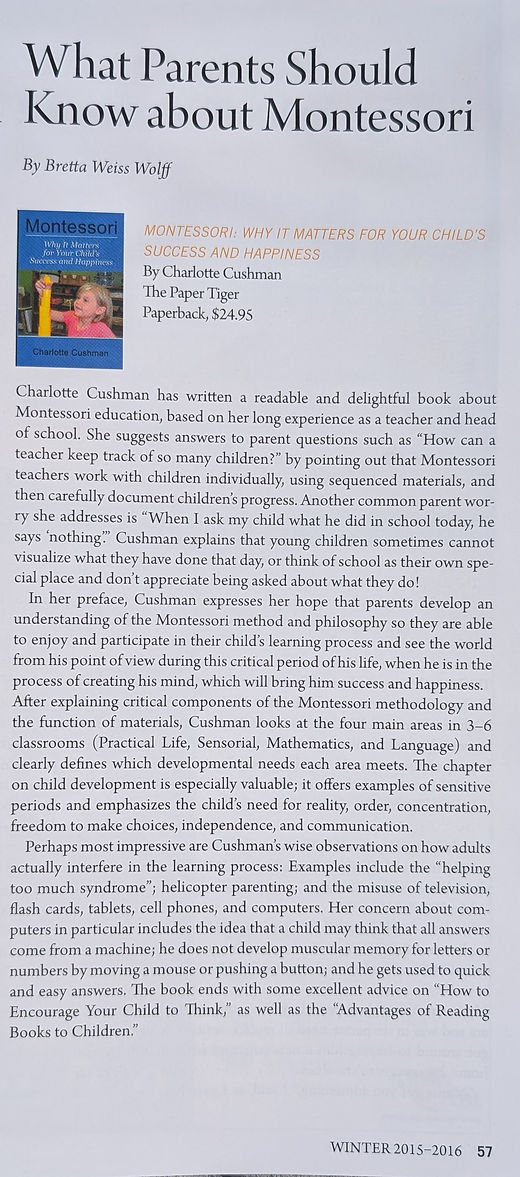
REVIEW by Bretta Weiss Wolff
Bretta Weiss Wolff was co-founder (and later, head) of the Montessori School of Westchester in Larchmont, NY. and Hudson Country Montessori School in New Rochelle, NY. She served as the national director of the American Montessori Society for 14 years, over which period the number of AMS-member schools doubled; the pool of AMS-credentialed teachers more than tripled; and parent membership in the Society quadrupled. For more on her accomplishments click on the link below.
Her review was in the December 2015 issue of Montessori Life.

Montessori Life, the official magazine and blog of the American Montessori Society, is the preeminent publication for honoring the history and shaping the future of Montessori education. At the time of this publication, it was distributed to nearly 13,000 AMS members and other subscribers and read by an average 2.9 individuals—bringing total readership to 37,000.
Readers include teachers, heads of schools, program directors, business managers, and other administrators and decision-makers.
"The chapter on child development is especially valuable; it offers examples of sensitive periods and emphasizes the child's need for reality, order, concentration, freedom to make choices, independence and communication."
"Perhaps most impressive are Cushman's wise observations on how adults actually interfere in the learning process..."




